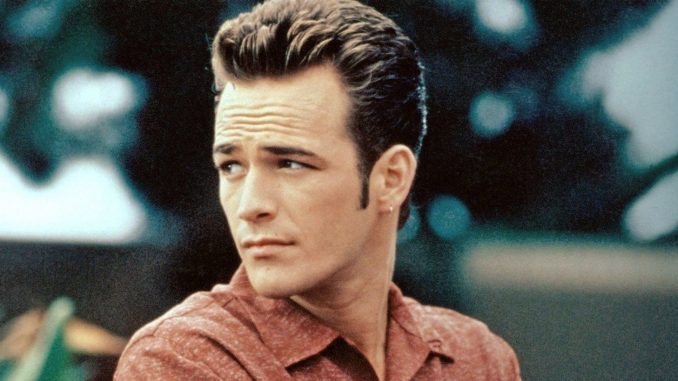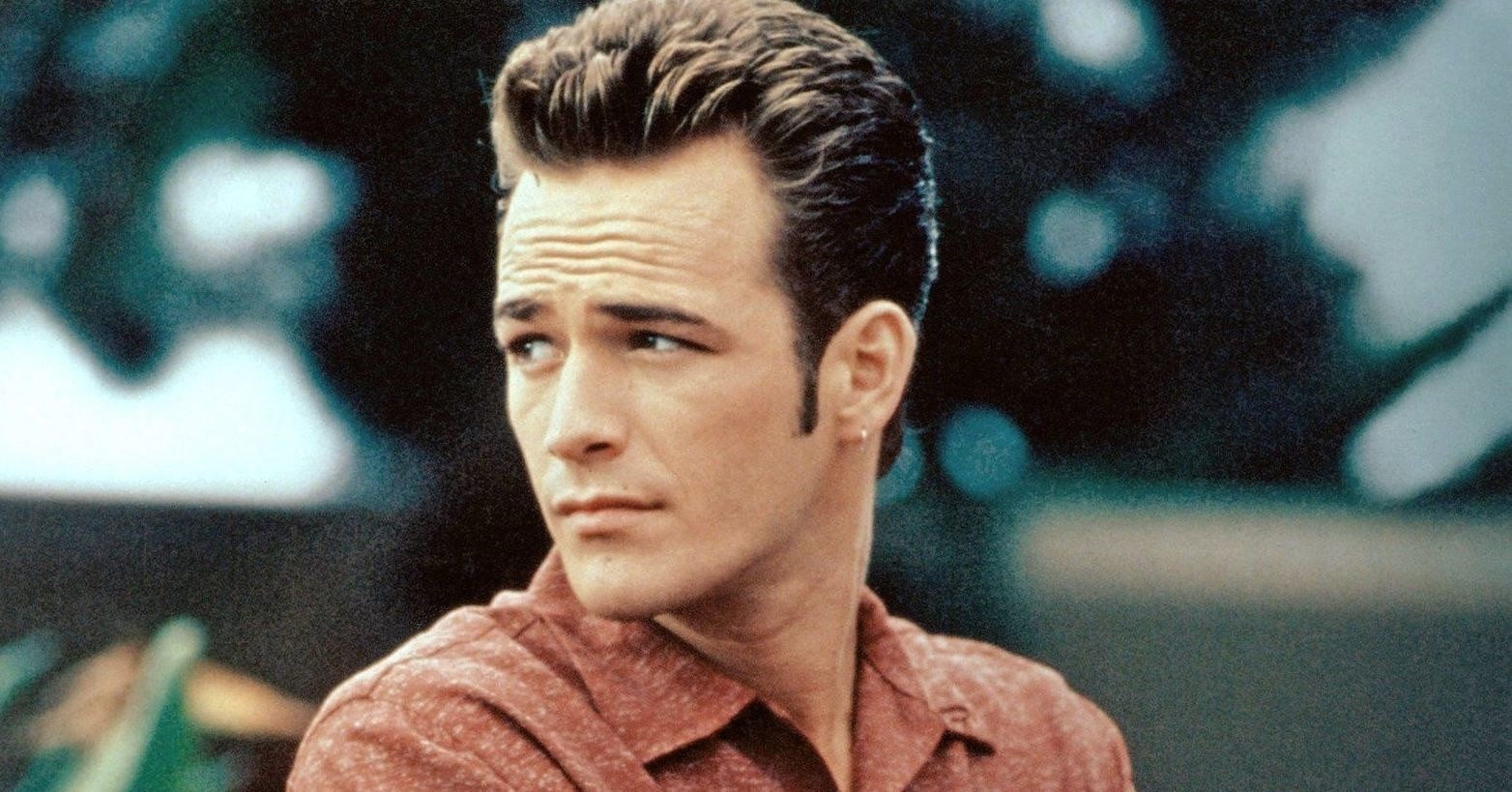

In Luke Perry’s debut on Beverly Hills, 90210, Brandon (Jason Priestley) hops into Dylan’s vintage convertible Porsche, picks up a book, and asks his new friend about it.
“Ah, a little leisure reading,” Dylan says modestly, looking down.
“Byron: The Collected Works?” Brandon says admiringly.
“Mad, bad, and dangerous to know,” Dylan intones, quoting the famous description of Lord Byron.
Looking at Brandon with the cool nonchalance that came so easily to Perry as an actor, Dylan then adds, “That was him — and that’s me.”
I rewatched that scene today after learning that Perry died after having a stroke last week. When I first saw it, I was 21 years old and watched Beverly Hills, 90210 with the affected irony that defined Generation X’s media consumption. A high school friend had told me to make time for 90210; I had missed its first episode. I was in college, after all, and in October 1990, there was pretty much one way to see a TV show — sit down in front of an actual television to watch it live. But my friend’s description was compelling: “It seems like it’s going to be an after-school special every single week!”
So I found a place to watch Episode 2, which introduced the character of Dylan. And I then watched every single episode of 90210 — and there were times when the show truly tested me — until it ended in May 2000. It was often a communal event, both during college and after.
The show revolved around the Walsh family’s move from middle-class Minnesota to ostentatiously rich Beverly Hills, where everyone had so much money that the local public school was apparently just as good as a private education. Brandon Walsh (Priestley) and his twin sister, Brenda (Shannen Doherty), were our guides into this thrilling world, as they sometimes got swept up into the drama, misbehavior, and glamour of their wealthy friends — and were changed by it.
The show addressed such issues as sex, drinking, the pressures of school, mental health, learning disabilities, and rape — and that was just in Season 1! Like my friend said, it was an after-school special every week and I loved it unabashedly.
Once Generation X stopped being defined as slackers — which happened during the first internet boom in the Clinton years — we lost our identity. But when the news was announced at the end of February that most of the original cast of 90210 will reunite this summer for a meta comedy-drama in which they play themselves rebooting Beverly Hills, 90210, the event felt like it was truly ours. And perhaps that’s just what Generation X is in this moment: a collection of pop culture memories.
Because of the CW drama Riverdale, Perry hadn’t joined the new 90210, but surely would have been included somehow. Now that he has died, his absence on the revival will be deeply felt, and casts a shadow over what otherwise would have been a fun, soapy lark.
It will be hard for whatever they do to not feel exploitative. But perhaps it will also provide catharsis — something I feel I need as of this writing.
While we’re now awash in teen soap operas and young adult fiction, until 90210, there had never been a successful American TV drama about the lives of high school students. We’d had the boarding school of The Facts of Life (1979–1988) and the gifted kids on Head of the Class (1986–1991), but those were comedies. Those of us who wanted to see people our own age onscreen in dramatic situations — and I was one of them — were driven to seek out Degrassi on whatever PBS station it aired on. It wasn’t easy!
90210 changed all of that. The different characters provided varied points of identification for (white) viewers, as well as adoration, and I marveled as it became a cultural phenomenon. It felt like the first show that replicated the kind of fandom that had previously existed only for music and movies. And though the height of 90210‘s popularity was years before fans would divide into “teams” over Twilight‘s Edward and Jacob, in the early ’90s, whether you loved Dylan or Brandon said as much about who you were as a person as your allegiance to John Lennon or Paul McCartney had during Beatlemania in the 1960s.
For the record, I — an open lesbian for years at that point — loved Dylan, and sneered at friends who were pro-Brandon. Brandon was annoying, self-righteous, and judgmental. The troubled, secretly smart and sensitive Dylan was clearly the only choice.
The cast all became huge stars, which for some — particularly Shannen Doherty — extracted a personal cost. Perry seemed to escape fairly unscathed, but he did leave 90210 during its sixth season to pursue movie stardom, only to return in Season 9 when that did not materialize. Most younger fans today know Perry from Riverdale, on which he plays Fred Andrews, the loving father to the lead character, Archie (KJ Apa). The show has explicitly reveled in one teen idol passing the baton to the next. (Molly Ringwald plays Archie’s mom, for crying out loud!) Every time I think about how Riverdale will handle his death, my eyes well up with tears.
I can still hear Perry saying “Donna Martin graduates” in the classic Season 3 90210 episode in Dylan’s flat, cool-kid voice like it happened yesterday, instead of almost 26 years ago. I’m saying it in my head right now. Every generation has its cultural touchstones, and Dylan McKay was one of mine.

